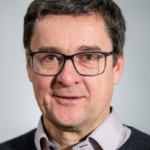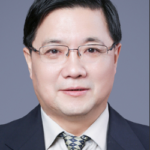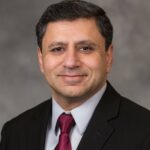Keynote Speakers

Prof. Andreas Schütze
High performance gas measurement systems – bridging the gap between sensors and analytics
Photo Credit – Oliver Dietze
Prof. Andreas Schütze, a distinguished academic in the field of applied physics, obtained his Ph.D. from Justus-Liebig-Universität in Gießen, Germany, in 1994. His research journey has primarily revolved around microgas sensor systems, and he has garnered extensive experience during his tenure in the industry and as a Professor of Microsystems Technology at the University of Applied Sciences, Krefeld, Germany. Since 2000, he has been a Full Professor of Measurement Science and Technology at Saarland University, Germany. His core area of expertise lies in microsensors and microsystems, with a specific emphasis on advanced chemical sensor systems tailored for gas and liquid phase analysis.
High performance gas measurement systems – bridging the gap between sensors and analytics
Since the introduction of metal oxide semiconductor (MOS) gas sensors by Taguchi in the 1960s these sensors have evolved to the digital MEMS sensors availabletoday, which combine multisensory platforms with integrated electronics for dynamic operation and sensor read-out. Due to their broad response spectrum and combined with machine learning for interpretation of the high-dimensional output data these sensors can address various applications ranging from indoor air quality (IAQ) monitoring, industrial monitoring and safety, food quality control to breath analysis to mention only a few. By utilizing comprehensive calibration advanced sensor systems basedon digital MOS sensors can be programmed to address these and other applications and have already demonstrated high performance comparable to analytical systems.
This nowopens a path for new gas measurement systems by combining the advantages of sensors (online, mobile, pervasive) and analytical systems (selectivity, reliability), not only in terms of technology but also in terms of quality control. The talk will first outline the state-of-the-art of MOS sensor systems with emphasis on VOC monitoring, identification,and quantification. Then it will present opportunities and challenges for systems combining sensor and analytical technology.

Dr. Ping Wang
Biosensor National Special Lab, Department of Biomedical Engineering, Zhejiang University, Hangzhou, China
Ping Wang is a full Professor of Biomedical Engineering of Zhejiang University, while he is Director of Biosensor National Special Laboratory and Vice Director of Academic Committee of Key Lab for Biomedical Engineering of National Education Ministry of China, Zhejiang University. He is a member of The International Society for Olfaction and Chemical Sensing (ISOCS) ,a member of Asia-Pacific Regional Steering Committee of International Meeting on Chemical Sensors (IMCS).a member of International Steering Committee of Asian Conference on Chemical Sensors (ACCS). He is also a Director of Biomedical Measurement Society of China, Vice-Director of Ion & Biosensor Society and Vice-Director of Biomedical Sensors Technique Society of China.
Progress of Bioelectronic Nose and Bioelectronic Tongue in vitro and in vivo for Odor and Taste Perception
Electronic nose (e-Nose) and electronic tongue (e-Tongue) belong to these technologies, which mimic animal olfactory and gustatory systems to detect odor and taste by exploiting sensitive materials. Bioelectronic nose (Bioe-Nose) and bioelectronic tongue (Bioe-Tongue) based on natural olfactory and gustatory structure of creatures has optimized processing system which has advantages of quick response time, self-updating and fast recovery etc.
The challenges in Bioe-Nose and Bioe-Tongue are obtaining signals from the biological system and understanding the information. The Bioe-Nose and Bioe-Tongue as smell and taste sensors uses olfactory and gustatory living cell, tissue or receptors on the surface of electronic chips in vitro and while they will also could be completed through implanting the microelectrodes into the olfactory or gustatory nerve center in vivo and controlled by brain computer interface (BCI).
This paper reviews the research progress of Bioe-Nose and Bioe-Tongue technology in vitro and in vivo from our group and their recent application in health, disease and food safety monitoring fields etc.

Dr. Yogesh Gianchandani
On-chip sampling and analysis — a selective view
Yogesh B. Gianchandani is a Professor at the University of Michigan, Ann Arbor, with a primary appointment in the Electrical Engineering and Computer Science Department and a courtesy appointment in the Mechanical Engineering Department. Since 2010 Dr. Gianchandani has served as the Director for the Center for Wireless Integrated MicroSensing and Systems (wims2.org) at the University of Michigan. Dr. Gianchandani’s research interests include microsystems for environmental monitoring and healthcare (web.eecs.umich.edu/~yogesh/). He has graduated 48 doctoral students, and contributed to more than 50 US patents and 350 papers in journals and conferences. From 2007 to 2009 he served at the National Science Foundation, as the program director for Micro and Nano Systems within the Electrical, Communication, and Cyber Systems Division (ECCS). Since 2016 he has also served as the CTO of Omniscent, Inc., which develops high performance microfabricated sensors for air quality monitoring.
